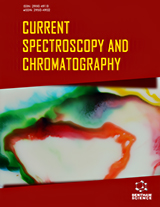Abstract
Background: Carotenoids are natural plant pigments and precursors of vitamin A, which provide a health benefit, protect against chronic degenerative diseases, and contribute to immune functions. Utilization and identification of foods with a high content of carotenoids received greater attention nowadays.
Objective: The present study was aimed at evaluating total carotenoids content (TCC) and carotene composition of unconventional leafy vegetables growing in Bangladesh.
Materials and Methods: The samples were collected from different locations of Bangladesh and mixed together to ensure sample representativeness. Acetone–petroleum ether extraction followed by spectrophotometric measurement was utilized for quantification of TCC. High-performance liquid chromatography (HPLC- DAD) was used to separate and quantify carotene components.
Results and Discussion: The TCC values ranged from 129.38 μg/100 g edible portion (EP) in Helencha to 12803.31 μg/100 g EP in Roktodrone. The study findings also revealed that the selected plant samples exhibited high content of β-carotene ranging from 120.99 μg/100 g EP in Parul to 11301.16 μg/100 g EP in Roktodrone. It was also observed that most of the vegetables analyzed did not have α-carotene, lycopene, β-cryptoxanthin or it was in such a small quantity that could not be detected with HPLC.
Conclusion: It can be suggested that regular intake of these vegetables may provide pro-vitamin A. In order to address the vitamin A deficiency and to maintain biodiversity, the analysis of carotenoids composition of these unconventional plant foods is to be initiated and make it available to the mass population. It would also fill up the data gap in the existing food composition table of Bangladesh.
Keywords: Vitamin A, β-carotene, carotenoids, carotene profile, HPLC-DAD, unconventional vegetables.
[http://dx.doi.org/10.1016/j.foodchem.2020.126646] [PMID: 32229398]
[http://dx.doi.org/10.3390/antiox8070203] [PMID: 31266183]
[http://dx.doi.org/10.5219/1107]
[http://dx.doi.org/10.3390/foods5030064] [PMID: 28231159]
[http://dx.doi.org/10.2174/1573401315666191209095515]
[http://dx.doi.org/10.1046/j.1523-5408.2002.00004.x] [PMID: 12134711]
[http://dx.doi.org/10.1002/ijc.25201] [PMID: 20104528]
[http://dx.doi.org/10.3390/nu5041169] [PMID: 23571649]
[http://dx.doi.org/10.1108/PRT-02-2018-0019]
[http://dx.doi.org/10.1016/j.foodchem.2015.12.057] [PMID: 26776017]
[http://dx.doi.org/10.1038/s41598-020-57687-3] [PMID: 31992722]
[http://dx.doi.org/10.1371/journal.pone.0222517] [PMID: 31830064]
[http://dx.doi.org/10.1080/09543465.1988.11904124]
[http://dx.doi.org/10.1016/j.lwt.2004.06.012]
[http://dx.doi.org/10.1016/j.foodchem.2006.04.015]
[http://dx.doi.org/10.1021/jf0481711] [PMID: 15826027]
[http://dx.doi.org/10.1023/A:1011125232097] [PMID: 11442223]
[http://dx.doi.org/10.1021/acs.jafc.6b00268] [PMID: 27045759]
[http://dx.doi.org/10.3136/fstr.13.247]
[http://dx.doi.org/10.1016/j.foodres.2017.02.014] [PMID: 28964364]
[http://dx.doi.org/10.1093/nutrit/nuv064] [PMID: 26747887]
 19
19 3
3


















